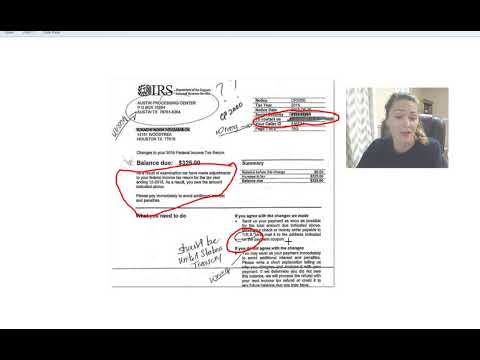Content
The FDIC does not attempt to supervise the relationships between fiduciaries and customers or the distribution of funds from fiduciaries to customers. People who have lived in Georgia may have property being protected by the state, including uncashed checks, security deposits, overpayments, and more. If the owner doesn’t take action for the property within a set amount of time, the holder of the property is required to turn it over to the state. Paychecks may be cashed or deposited up to 60 days from the pay date as shown on the check. After 60 days the checks become “stale” and a replacement check must be issued.
- When there is no open bank acquirer for the deposits, the FDIC will pay the depositor directly by check up to the insured balance in each account.
- Checks that remain outstanding for long periods of time cannot be cashed as they become void.
- The payor is the entity who writes the check, while the payee is the person or institution to whom it is written.
- As soon as the fiduciary provides the needed information, the FDIC will pay insurance through one of the means previously described.
The payor still owes the payee money, making the payment a liability. Any individual or business can search our UCP system for unclaimed property that we are holding in their name. If they find property in their name, the owner or claimant can file to get their property back. This may include an heir or someone filing for an elder who cannot file on their own. The Department of Revenue oversees unclaimed property for Washington, and administers the unclaimed property program to seek the rightful owners.
How long are U.S. Treasury checks good for?
As businesses have to abide by the unclaimed property laws, any checks that have been outstanding for a long time must be remitted to the state as unclaimed property. As such, there is no incentive to wish for an outstanding check to permanently never be cashed as the payment is subsequently owed to the government for holding. In Montana payroll checks that are never cashed by an employee fall under the unclaimed property rules. The holder has the responsibility to determine if the stale checks meet the state’s requirements for filing an unclaimed property report and remitting them to the state. The payor must be sure to keep enough money in the account to cover the amount of the outstanding check until it is cashed, which could take weeks or sometimes even months.

The technical process to be compliant with State law is onerous, and California’s unclaimed property laws are some of the strictest in the country. Companies must file annual reports that identify any outstanding funds and remit those funds to the State. If the outstanding check has expired, you may want to write another check; however, it’s possible that this check will go stale, too, and that would prolong the situation.
Laws Regarding Overpayment of Salary
Millions of dollars are transferred to the Unclaimed Property Program each year by companies that cannot locate the owners. Individuals, estates, businesses and even churches and charities can have unclaimed property. It only takes a minute to find out if we are holding money for you. Before the reconciliation process, business should ensure that they have recorded all transactions up to the end of your bank statement. Businesses that use online banking service can download the bank statements for the regular reconciliation process rather than having to manually enter the information. Checks from the state or local government agencies will expire according to state law.
Generally, if a paycheck is unclaimed for one to five years, you will need to hand over the amount of the check to your state. When you pay an employee with a paycheck, they do not have to cash it right away. They might hang onto the check until they absolutely need to cash it. The depositor would be given a Receiver’s Certificate as proof of this claim and would receive payments as the assets of the bank are liquidated.
Find Your Missing Money & Unclaimed Property
We’re here to tell you what steps you need to take with unclaimed checks to stay compliant and legal with the IRS and your State. If the employee has lost their paycheck and you need to re-issue it, check out Issue a lost paycheck for detailed steps. Once an unclaimed paycheck is escheated, the employee might be able to apply to the state to get the funds back.

Treasury checks, cashier’s checks, money orders, and traveler’s checks are different. Individuals need to account for outstanding checks when they balance their checkbooks. When you write a personal check, you should record the date, check number, payee, and How To Handle Outstanding Checks In Payroll amount in your check register. This is very important because your bank balance will be higher than your available funds until the check clears the bank. Recording it in your register right away reminds you that those funds are earmarked for that check.
The University will periodically notify departments or employees of “stale” checks which appear as outstanding on the bank reconciliation. Replacement of these checks requires the same procedures as those for lost checks. After Gerczak Sr. died, his son filed a claim with the estate seeking more than $164,000 the son said represented his father’s loans to the business. Best practices for managing and clearing outstanding checks include regular bank statement reconciliation, promptly voiding or canceling unused checks, and maintaining proper record-keeping. Also, always maintain in communication with payees about payments not fully processed. To reconcile outstanding checks with your bank statement, compare the checks issued but not yet cleared with the information provided on the statement, ensuring that both records align.
- It’s important to read the fine print as provided by the issuer.
- This should provide real-time information about the total dollar amount of checks outstanding and the total dollar balance present in the account.
- They represent pending transactions where the funds have not yet been deducted from the issuer’s account.
- To fix this, you will need to reconcile your bank account with your accounting books.
Escheating checks is a legal process that transfers ownership of abandoned property (uncashed payroll checks) to the State of California. For uncashed checks, the period is three years; for payroll checks, the period is one year. Therefore, this process should be completed prior to year-end each year in the restaurant industry. Unclaimed property is becoming an increasingly important issue and in response, states are stepping up their audits of entities that handle such assets. State auditors want to ensure unclaimed checks receive proper treatment and the employers’ financial statements accurately reflect the liabilities. Employers cannot simply void or write off uncashed payroll checks.
State Energy Conservation Office (SECO)
It is the FDIC’s goal to make deposit insurance payments within two business day of the failure of the insured institution. Uncashed payroll checks are treated as unclaimed property that must be reconciled with the State of California. As the restaurant operator still has control over the funds, that control must be transferred to the State where individuals can make a claim to recover that property. Businesses are also still on the hook for https://kelleysbookkeeping.com/ any Social Security and state taxes on uncashed amounts, as well as Medicare withholding. An exception to this procedure may include checks that were drawn against a deposit account that has been determined to be uninsured or an account that the deposit insurance determination is pending. The FDIC’s insurance coverage includes principal and interest through the date of the bank failure up to applicable insurance limit for each deposit.
If you hold onto a check for a while you run the risk of the account number or routing number changing or the check writer may have forgotten about the check and spent the money on something else. The justices found the spouse’s testimony was properly excluded. Without evidence that the uncashed paychecks were intended as loans, Gerczak Jr. couldn’t prove his case.
Once filed, the State Controllers Office will send out information outlining the process of trying to contact the individuals identified. The second step is filing a California Holder Remit Report and Final Remittance to start the transfer process of the funds to the State. Cashier’s checks are a type of “official check” and the rules surrounding them can be complicated. There’s no set or specified expiration date for cashier’s checks. Some say cashier’s checks don’t expire, while others claim a cashier’s check is stale (out of date) after 60, 90, or 180 days. Cashier’s checks are backed by the issuing bank and, theoretically, should be valid for as long as the bank is in operation, but some banks will put expiration dates on the checks themselves.
